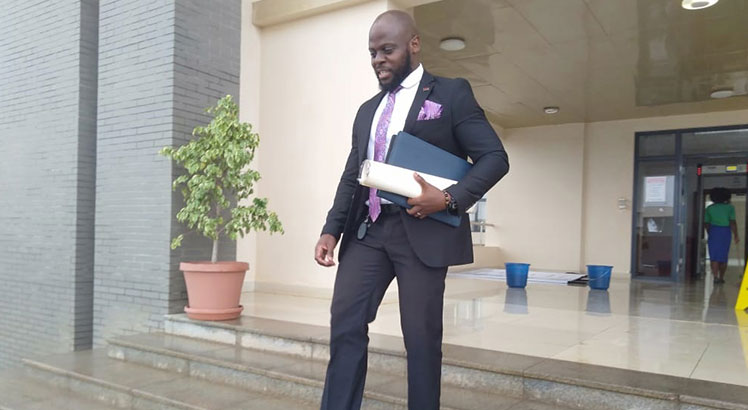Inmates languish as saving Bill gathers dust
Life in prison walls has been a nightmare for 24-year-old Agnes Mponda, a mother of two. The woman from Thyolo District is suspected of murder and has been on remand at Blantyre Prison since April 26 2023.
Apparently, a man who proposed marriage to her was found dead near her house, thus prompting the allegations.
In an interview with Nation on Sunday, Mponda decried prison living conditions.
She said: “We are congested and get sick constantly. I never imagined living like this.”
Mponda said the lack of sanitary pads, challenges in accessing water or nutritious foods amount to torture and misery.
Similar sentiments were expressed by Mefa Malata, from the same district, who has been on remand since April 1 2023.

“When our sentenced colleagues were relocated to Thyolo Prison, they were happy to move to a more spacious environment.
“The ventilation here is poor and we go for weeks without bathing and food is erratic. Illnesses are rampant,” she said.
Malata also bemoaned lack of timely healthcare services.
In January this year, the Malawi Prisons Service finished a relocation exercise to designated correctional facilities as part of special programmes for female inmates.
Those in the Southern Region were relocated to Thyolo Prison and those in the Central Region went to Kachere Rehabilitation Centre while those in the Northern Region were moved to Mzuzu Female Prison.
But remanded female offenders remain in maximum security prisons.
The challenges they are facing can be addressed through the Prisons Service Bill which has gathered dust for two decades since its formulation.
It champions the creation of a parole system that will usher in a fair system for releasing prisoners before they complete their sentences.
The Bill will also ensure the establishment of prison clinics and introduce community service to decongest prisons.
Centre for Human Rights Education Advice and Assistance executive director Victor Mhango on Tuesday described delays in enacting the law as retrogressive.
The current Prisons Service Act was enacted in 1956 and focuses on the suppression and punishment of offenders.
Said Mhango: “The prolonged wait in enacting the Bill means congestion, health and conditions of confinement remain unattended to.
“This Act does not regard prisoners’ human rights which is what the Prisons Service Bill seeks to correct such as promote human rights and the minimum standards of human dignity.”
In his February 2023 State of the Nation Address, President Lazarus Chakwera assured the tabling of the Bill in Parliament to reform prisons.
“And in the new fiscal year [2023/24], we are reviewing and bringing forward the Prison Services Bill to create the parole system that will usher in a more fair way of releasing prisoners before completion of their sentences,” he said.
It was never tabled.
But Mhango, whose organisation has been advocating for the Bill, emphasised its importance to address the maximum holding capacity of prisoners which could create a ripple effect of improvements within the prisons.
Ministry of Justice spokesperson Frank Namangale in an interview on Friday said the Bill was not tabled in the previous Budget Session due to competing Bills.
“It was indeed planned to be presented during the Budget Session, but it is on our priority list, hopefully to be considered in the next sitting of Parliament,” he said.
The Penal Reform International visited Malawi in 2003 to help in drafting of the Bill which has been anticipated to change the prison framework from an outdated colonial era model adopted in 1956.
The initial Bill was shelved in the late 2000s for not being in line with Malawi’s socio-economic realities.
In 2013, a Special Law Commission drafted a new Bill published in 2018.
In a published opinion in The Nation edition of November 22 2022 titled ‘Time to Reform Our Prisons’, Irish Rule of Law country programme manager Susie Kiely and Mhango said Malawi should make an effort to change the prison system.
Reads the opinion: “If Malawi does not make an effort to and shift the focus from punishment to rehabilitation and tackling selective justice, the prison population will keep growing. People, both within and outside prisons, will keep suffering






Đăng ký ngay và tải xuống app để được nhận ưu đãi miễn phí tại yo88.com!
Hãy tranh thủ tham gia ngay và tải ứng dụng để nhận ngay những phần thưởng hấp dẫn tại yo88.com!
Đừng chần chừ, đăng ký ngay và tải ứng dụng để nhận liền những phần thưởng tuyệt vời tại yo88.com!
Không nên chần chừ, hãy tham gia ngay để nhận liền những phần thưởng hấp dẫn tại yo88.com!
Nhanh tay đăng ký và tải ứng dụng để được nhận những quà tặng hấp dẫn tại yo88.com!
Nhanh chóng tham gia ngay để nhận ngay những ưu đãi hấp dẫn tại yo88.com!